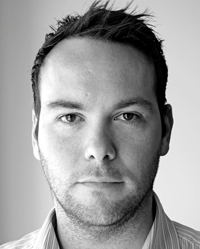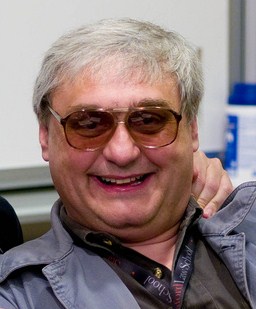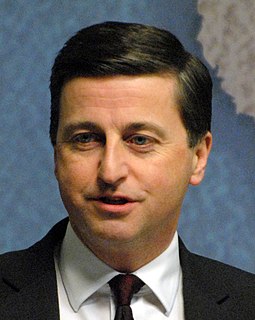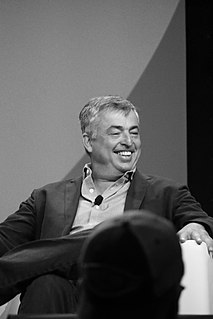Top 1200 Science And Technology Quotes & Sayings - Page 19
Explore popular Science And Technology quotes.
Last updated on April 20, 2025.
An enormous amount of modern ingenuity is expended on finding defences for the indefensible conduct of the powerful. As I have said above, these defences generally exhibit themselves most emphatically in the form of appeals to physical science. And of all the forms in which science, or pseudo-science, has come to the rescue of the rich and stupid, there is none so singular as the singular invention of the theory of races.
China is a main energy consumer and, therefore, is also a big greenhouse gas emitter. We must use energy resources rationally and must conserve. This needs us to adjust our economic structure, transform the mode of development, to make economic development more dependent on progress of science and technology and the quality of the work force.
You can't just stop technological progress. Even if one country stops researching artificial intelligence, some other countries will continue to do it. The real question is what to do with the technology. You can use exactly the same technology for very different social and political purposes. So I think people shouldn't be focused on the question of how to stop technological progress because this is impossible. Instead the question should be what kind of usage to make of the new technology. And here we still have quite a lot of power to influence the direction it's taking.
We are entering a hyperconnected world where every boss now has more access, cheap access to cheap labor, cheap genius, cheap robot, cheap software, and then this world averages over. There is only one answer to that, and that is to get everyone as close as possible to some form of post-secondary education, it could be vocational, it can be liberal arts, it can be science and technology.
Overprotecting intellectual property is as harmful as underprotecting it. Creativity is impossible without a rich public domain. Nothing today, likely nothing since we tamed fire, is genuinely new: Culture, like science and technology, grows by accretion, each new creator building on the works of those who came before. Overprotection stifles the very creative forces it's supposed to nurture.
But in practical affairs, particularly in politics, men are needed who combine human experience and interest in human relations with a knowledge of science and technology. Moreover, they must be men of action and not contemplation. I have the impression that no method of education can produce people with all the qualities required. I am haunted by the idea that this break in human civilization, caused by the discovery of the scientific method, may be irreparable.
Myths are about the human struggle to deal with the great passages of time and life--birth, death, marriage, the transitions from childhood to adulthood to old age. They meet a need in the psychological or spiritual nature of humans that has absolutely nothing to do with science. To try to turn a myth into a science, or a science into a myth, is an insult to myths, an insult to religion, and an insult to science. In attempting to do this, creationists have missed the significance, meaning, and sublime nature of myths. They took a beautiful story of creation and re-creation and ruined it.
Traditional people of Indian nations have interpreted the two roads that face the light-skinned race as the road to technology and the road to spirituality. We feel that the road to technology.... has led modern society to a damaged and seared earth. Could it be that the road to technology represents a rush to destruction, and that the road to spirituality represents the slower path that the traditional native people have traveled and are now seeking again? The earth is not scorched on this trail. The grass is still growing there.
The technologies that will be most successful will resonate with human behaviour instead of working against it. In fact, to solve the problems of delivering and assimilating new technology into the workplace, we must look to the way humans act and react. In the last 20 years, US industry has invested more than $1 trillion in technology, but has realised little improvement in the efficiency of its knowledge workers and virtually none in their effectiveness. If we could solve the problems of the assimilation of new technology, the potential would be enormous.
If science proves some belief of Buddhism wrong, then Buddhism will have to change. In my view, science and Buddhism share a search for the truth and for understanding reality. By learning from science about aspects of reality where its understanding may be more advanced, I believe that Buddhism enriches its own worldview.
We might sometimes reflect and recall that the purpose of all our science, technology, industry, manufacturing, commerce, and finance is celebration, planetary celebration. This is what moves the stars through the heavens and the earth through its seasons. The final norm of judgment concerning the success or failure of our technologies is the extent to which they enable us to participate more fully in this grand festival.
Textbook science is beautiful! Textbook science is comprehensible, unlike mere fascinating words that can never be truly beautiful. Elementary science textbooks describe simple theories, and simplicity is the core of scientific beauty. Fascinating words have no power, nor yet any meaning, without the math.
But concerning vision alone is a separate science formed among philosophers, namely, optics, and not concerning any other sense ... It is possible that some other science may be more useful, but no other science has so much sweetness and beauty of utility. Therefore it is the flower of the whole of philosophy and through it, and not without it, can the other sciences be known.


























































